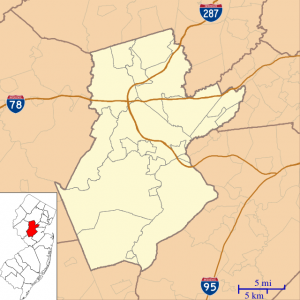 BRIDGEWATER, N.J. — A New Jersey town has agreed to pay $2.75 million to purchase land for a proposed mosque in order to settle a lawsuit that was filed by Muslims who were prohibited from opening a mosque in another area of the township.
BRIDGEWATER, N.J. — A New Jersey town has agreed to pay $2.75 million to purchase land for a proposed mosque in order to settle a lawsuit that was filed by Muslims who were prohibited from opening a mosque in another area of the township.
According to the settlement between Bridgewater officials and the Al Falah Center, the mosque will be built between Routes 202-206 and 287 on a 15-acre strip of land, and the township’s insurance will also pay $5 million in damages and attorney’s costs. The total settlement will amount to $7.75 million dollars.
In 2011, the township planning board rejected a proposal for a former inn to be converted into a mosque, as it pointed to a newly-approved ordinance that only allowed houses of worship, along with schools and country clubs, to be built on major roadways because of traffic concerns and in order to “preserve the residential character of its various neighborhoods.” The township rejected the notion that it refused the proposal simply because it involved a mosque.
But those behind the Al Falah Center then filed a federal lawsuit against the town of Bridgewater in an effort to to force officials to permit the renovation of the building into a mosque and Islamic community center. The complaint asserted that the ordinance was discriminatory and violated both their First and Fourteenth Amendment rights under the United State Constitution, as well as the federal Religious Land Use and Institutionalized Persons Act.
Last fall, U.S. District Judge Michael Shipp, appointed to the bench by Barack Obama, barred the ordinance from being enforced and ordered the township to reconsider the application. He also ruled that he found “anti-Muslim prejudice within the community, including Internet postings and e-mail correspondence,” which Shipp believed may have contributed to the denial, and said that the township “rendered it nearly impossible for Al Falah and its individual members to adhere to the tenets of their religion.”
Therefore, hearings and meetings have continued over the past year in seeking to accommodate the Al Falah Center. Discussions focused on code issues, such as the maximum occupancy in the building, as well as the parking space needed. A maximum of 320 people could be held in the prayer area of the mosque, but over 400 could occupy the building. Some area residents attended to express concerns over the noise level that might emanate from the mosque.
But in a settlement reached this fall, the township agreed to purchase land on the highway for the mosque in lieu of allowing the Al Falah Center to convert the inn in the smaller residential area. $815,000 of the $2.75 million to purchase the land will come from the Open Space Trust Funds, and the remaining $1.935 million will come from a bond ordinance.
Officials for the township state that they chose to accept the agreement so as to avoid using taxpayer money for legal costs. The $5 million in damages and legal fees are being paid by the township’s insurance company.
“The preservation of our residential areas and the ability to zone uses appropriate for their locations is a critical right that the township fought to preserve,” Mayor Dan Hayes told reporters. “This settlement leaves our ordinance intact, ends our exposure to the almost unlimited costs of further litigation and allows all parties to move forward.”
But some are still questioning the outcome of the case.
“What exactly were the ‘damages sustained’ that required $5 million in compensation?” one commenter asked. “Also, can’t they see this is a precedent, and that every other mosque-builder in America will now use this blueprint to coerce municipal accommodation?”
“I’ve lived in central Jersey a good part of my 50-year life, and have never heard of either a synagogue or a church stirring such controversy, demanding such accommodation, and being rewarded such sums,” they continued. “This much I can say: This will backfire on the mosque. And the residents will express their dissatisfaction in one way or another.”
Become a Christian News Network Supporter...


